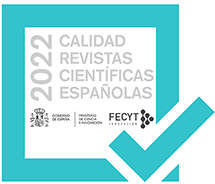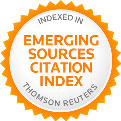Coeducación y climas de aprendizaje en educación física. Aportaciones desde la teoría de Metas de Logro. (Coeducation and learning climates in physical education. Contributions from the Achievement Goals theory).
Resumen
El artículo parte de la revisión de la materia preocupada por la creación de climas de aprendizaje que garanticen la equidad del alumnado y, en línea con ello, revisa el debate sobre las ventajas e inconvenientes que tiene la educación por grupos segregados en función del sexo frente a una educación mixta. En este debate, algunos estudios han defendido que las clases mixtas generan atmósferas de trabajo más amigables y relajadas, así como más oportunidades de contacto social e interacción. Por el contrario, otros estudios han defendido que las clases de mismo sexo permiten a las alumnas una mayor interacción con sus profesoras debido a que este tipo de clase fomenta la participación, autoestima, competencia percibida y disciplina. El artículo considera la perspectiva de la Teoría de Metas de Logro y su utilidad para el debate planteado. En este sentido, los estudios sobre los ambientes de aprendizaje han señalado relaciones positivas entre el clima motivacional que implica a la tarea y una mayor percepción de trato de igualdad, así como relaciones positivas entre el clima motivacional que implica al ego y la percepción de discriminación por parte del profesor. Resaltamos, por tanto, la labor del profesor de educación física en la creación de climas de aprendizaje que favorezcan la igualdad de oportunidades y presentamos estrategias metodológicas bajo las áreas del TARGET descritas por Ames (1992).
Palabras clave/key words: coeducación | clima motivacional | teoria de Metas de Logro | educacion fisica | coeducation | motivational climate | Achievement Goal theory | physical education
Abstract
Based on the research concerns for student’s equity and learning climates, this paper reviews the coeducational literature and, specially, the advantages and disadvantages of using segregated groups in classroom. On one hand, studies have asserted that co-educational classes create relaxed and friendly climates. On the other, sin- gle-sex classes have been showed in helping the interrelationship between girls and teachers as these classes promote participation, self-esteem, perceived competence and discipline. Our paper considers the goals theory perspective and its utility for the outlined debate. In this sense, stu dies on the learning atmospheres have pointed out positive relationships among the task-involving motivational climate and a bigger perception of equality treatment, as well as positive relationships among the ego-involving motivational climate and the teacher’s perception of discrimination. Therefore, we emphasize the physical education teacher’s work to create learning climates in order to favour the equality of oppor- tunities. We also show methodological proposals following the TARGET areas described by Ames (1992).
doi:10.5232/ricyde2008.01104
---------------------------------------------------------------------
Referencias/references
Mesinger, J. (2001). Conflicting gender role prescriptions and disordered eating in single-sex and coeducational school environments. Gender and Education, 13, 417-429.
doi:10.1080/09540250120081760
Nicholls, J. G. (1984). Achievement motivation: conceptions of ability, subjective experience, task choice and performance. Psychological Review, 91, 328-346.
doi:10.1037/0033-295X.91.3.328
Ntoumanis, N. (2002). Motivational clusters in a sample of British physical education classes. Psychology of Sport and Exercise, 3, 177-194.
doi:10.1016/S1469-0292(01)00020-6
Papaioannou, A. (1994). Development of a questionnaire to measure achievement orientations in physical education. Research Quarterly for Exercise and Sport, 65, 11-20.
PMid:8184207
Papaioannou, A. (1998). Students’ perceptions of the physical education class environment for boys and girls and the perceived motivational climate. Research Quarterly for Exercise and Sport, 69, 267-275.
PMid:9777663
Schunk, D. H. (1984). Self-efficacy perpective on achievement behavior. Educational Psychologist, 19, 48-58.
doi:10.1080/00461528409529281
Thomas, J. R. y French, K. E. (1985). Gender differences across age in motor performance: A meta-analysis. Psychological Bulletin, 98, 260-282.
doi:10.1037/0033-2909.98.2.260
PMid:3901062
Wolf, A.; Gortmarker, S.; Cheung, L.; Gray, H.; Herzog, D. y Colditz, G. (1993). Activity, inactivity and obesity: racial, ethnic and age differences among school girls. American Journal of Public Health, 83, 1625-1627.
doi:10.2105/AJPH.83.11.1625
PMid:8238692 PMCid:1694883
---------------------------------------------------------------------
Palabras clave/key words
Texto completo/Full Text:
PDF------------------------ 0 -------------------------
RICYDE. Revista Internacional de Ciencias del Deporte
![]()

Publisher: Ramón Cantó Alcaraz
ISSN:1885-3137 - Periodicidad Trimestral / Quarterly

